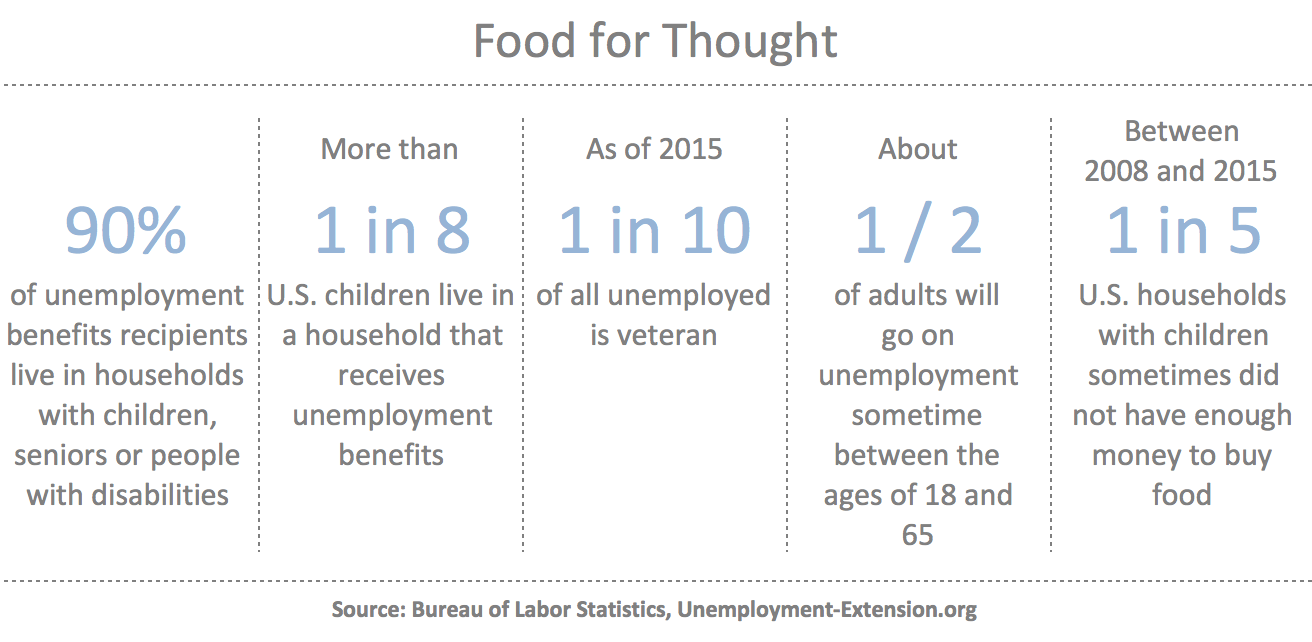Does Cutting Unemployment Benefits Reduce Unemployment?
By Unemployment-Extension.org | March 18, 2015 at 10:52 PM |
A recent new study from researchers at the National Bureau of Economic Research argues that Congress’s decision not to extend unemployment benefits in 2014 helped workers by creating some 1.8 million additional jobs.

Does cutting unemployment benefits reduce unemployment? The facts, as it turns out, is far more complex.
The Great Debate: Do Unemployment Benefits Help or Hurt the Economy?
At the onset of the Great Recession, Congress opted to extend unemployment benefits in order to aid workers who found themselves out of work. Last year, however, Republicans refused to extend the program. The responsibility to continue the established federal program therefore fell on the states. “At the end of 2013, because the program was not extended, it sort of produced this natural experiment. Because some states at that time had very different levels of weeks,†explained Kurt Mitman, one of the study’s authors. “Some states had no additional weeks all the way to 37 (weeks of unemployment benefits).â€
President Obama, along with many economists, was adamant that the move would be a disastrous one. They argued that the jobless spend the money that they receive on goods and services, which in turn fuels the economy. Cuts to benefits would, therefore, mean less spending and a less robust economy. However, the study suggests that in spite of the concerns of economists across the country, the opposite happened. Researchers argued that the economy put more people back to work overall than it would have had Congress successfully voted to extend the program.

“We find that a 1% drop in benefit term leads to a statistically significant improvement of employment by 0.0161 log points. In levels, 1.8 million new jobs were created in 2014 due to the benefits cut,†the researchers explained. “Almost one million of these vacancies were filled by workers from out of the labor force who would not have engaged in the labor market had benefit extensions been reauthorized. Average employment growth was about 25 percent higher in 2014 than in the best of several preceding years.†The study also pointed out that the employment-to-population ratio rose while the unemployment rate declined sharply and the number of job vacancies that employers were trying to fill increased remarkably.
States with especially generous unemployment benefits, such as Nevada, which offers workers 73 weeks of benefits, saw dramatic improvements in the number of people rejoining the workforce. All in all, the researchers found that the greater the reduction in benefits, the greater the increase in employment. The researchers argued that by not extending unemployment benefits, Congress forced workers to take lower-paying jobs than they otherwise would have, subsequently incentivizing firms to expand. Knowing that they could hire new workers for less, the firms were more likely to take on new employees, or so the theory goes.
How Valid Is the Paper’s Claim?
Not everyone is buying into the group’s claim that unemployment benefits are actually bad for the economy. A main tenant of the published study was that when receiving unemployment benefits, the unemployed can hold out longer for a job with a better-paying wage. The less benefits, the less a worker can afford to hold out and the more likely he or she is to take a job with a lower-paying wage than originally desired.
Many economists have expressed concerns regarding the data used and the analysis methods employed by the researchers. “I am seriously concerned about the last study. I continue to have those concerns. I don’t think they’ve been resolved,†said Jesse Rothstein of the University of California, Berkeley.
First and foremost, a variety of scholars has expressed concern about the researchers’ dataset. They used the Local Area Unemployment Statistics dataset that reports county-level information in order to compare similar economies that offering different levels of unemployment benefits. So California’s Alturas County was compared to its neighboring Klamath County in Oregon. The assumption was that the two economies would be largely similar while the unemployed benefits would be different, offering a convenient means of comparison. This proves problematic however, as counties that may seem similar could have dramatically different working conditions and economic trajectories considering differences in state economic policies. Dean Baker, a director of the Liberal Center for Economic and Policy Research, undertook a comparable analysis as the study’s researchers. However, he used an entirely different set of data and arrived at the opposite conclusion.
Several economists have also suggested that while the study does successfully demonstrate a correlation, it doesn’t necessarily indicate causation. Rothstein pointed out that economies tend to bounce back harder the farther they have fallen. Because Congress allocated benefits most generously in states with the highest unemployment rates, benefits were most drastically reduced in the states with the worst economies. The fact that these states saw the greatest gains in employment could be attributed to the fact that their economic situations were worse overall.
The Final Verdict: Why We Shouldn’t Ax Unemployment Benefits Altogether
It is crucial to note that unemployment benefits provide workers with much-needed protection in a weak economy. “It is advantageous to have unemployment benefits for those with no jobs, and that shouldn’t be ignored,†Mitman insisted. “If you recall 2008 and 2009, there were lots of people dependant upon the unemployment benefits to make it through in a bad economy. I think people should be more careful regarding changes to a policy recommendation since it’s really a study about unemployment market measurement and not about recommendation.â€
Other Unemployment News
1 in 5 Suicides Linked to Unemployment, Researchers Find
Is a Higher Unemployment Rate in an Improving Economy Actually a Good Thing?
More News
